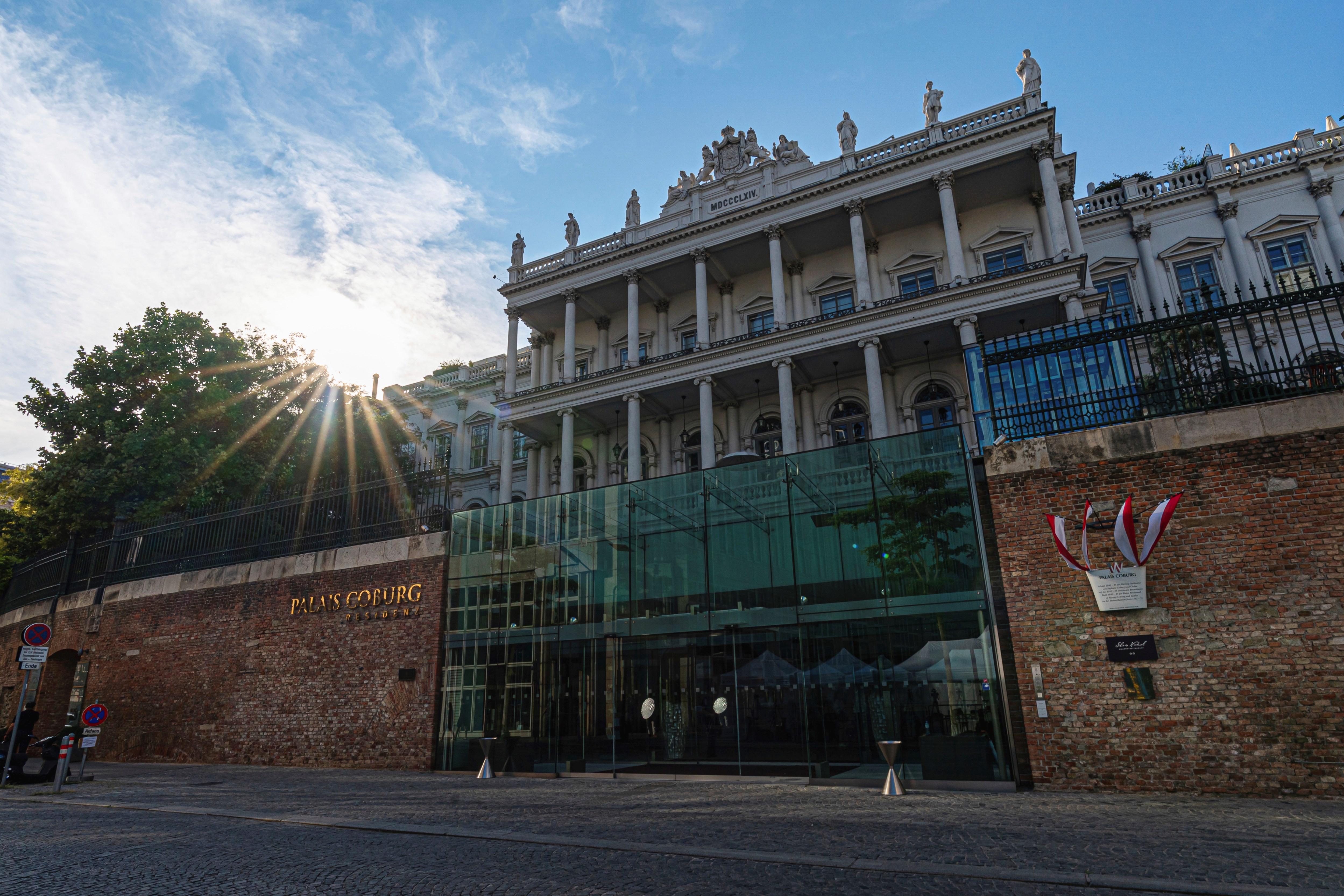Exclusive: Vienna talks over, final draft on the table - EU official
The JCPOA heads of delegations will return to their countries, but it does not mean they will stop the eighth round of negotiations.
-

The sun sets behind the Palais Coburg where closed-door nuclear talks take place in Vienna, Austria, August 5, 2022 (AP Photo/Florian Schroetter, File)
Al Mayadeen's correspondent to Vienna quoted a senior European official as saying on Monday that "the Vienna debate has ended and the delegations will return to their country's capitals."
The European official told Al Mayadeen's delegate that "there is a final draft on the table," noting that "the capitals must take the decision."
The European official explained that the problem of the relationship between Iran and the International Atomic Energy Agency (IAEA) is not within the frame of the negotiations, stressing that "this matter remains between Tehran and the agency."
According to the European official, "the formula that has been developed is a very good one," noting that there is no specific time for the delegations' return to Vienna, but we hope that this will happen "as soon as possible."
He stressed that "what we have done during the past few days is the best possible," noting that "all details have been negotiated, and we have exhausted all negotiation possibilities; the decision is now in the hands of the capitals."
Iranian official: Some relative progress achieved in a number of files
In this context, the Iranian news agency IRNA quoted a senior official in the Iranian Foreign Ministry as saying that "intensive negotiations have occurred over the last 4 days in Vienna on the remaining contentious issues."
The official went on to say, "During these negotiations, we announced our stances and shared them with the rest of the parties, and there was some relative progress in a number of files."
He mentioned that Enrique Mora, the European coordinator for the Iran nuclear talks, submitted some proposals that would solve the rest of the contentious issues.
"For our part, we immediately provided our feedback and some of our comments on these proposals, but of course, these issues need a comprehensive study, and we will communicate our views in full to Mr. Mora and the rest of the parties later," stressing that "the main issue for us is to preserve the rights of the Iranian people and to secure its interests."
In turn, the adviser to the Iranian negotiating team, Mohammad Marandi affirmed on august 6th, that "Iran will continue its constructive participation by studying today's amended proposals," noting that "the role of the coordinator is essential, but it is up to the parties to decide on the final draft."
Marandi had previously told Al Mayadeen that "the dispute in Vienna is between Iran and the United States, and it revolves around the remaining issues," denying the existence of "any differences between Iran and the Europeans or Russia."
Marandi added that "all of Iran's requests came within the joint action plan" adding that they do not breach the agreement at any point." The Iranian adviser explained that "The issue of the Islamic Revolution Guard Corps (IRGC) being on the US foreign terror organization list was never a pre-condition for the nuclear deal with Iran."
Sources revealed to Al Mayadeen that "during the past two days, views were exchanged on the European proposal and on Tehran's ideas," noting that "what was raised about Iran's retreat is a Western media game that has nothing to do with reality."
The negotiators in charge of the Iranian nuclear file met in Vienna on Thursday, in an attempt to revive the nuclear agreement after a 5-month hiatus.
Yesterday, the Russian envoy to the Vienna talks about the Iran nuclear deal, Mikhail Ulyanov, told Al Mayadeen that he was "optimistic" about the course the nuclear talks are taking.
Ulyanov revealed that the parties to the agreement were now in the final stage of negotiations. "I don't think that the talks can be prolonged for a long time. It's the time for decision-making in our capitals."
Also yesterday, Iranian Foreign Minister Hossein Amir Abdollahian stressed in a phone call with the Secretary-General of the United Nations, Antonio Guterres, that Iran wants to reach a durable agreement, mentioning that the talks are being held with seriousness, but their outcomes depend on whether the United States really wants to reach a deal.
Amir-Abdollahian also noted Iran’s cooperation with the International Atomic Energy Agency (IAEA) and advised the agency to stay away from political unconstructive matters and fully resolve issues through a technical path.
The talks between major powers and Iran aim to revive the 2015 nuclear agreement and return the United States to it following Washington's unilateral withdrawal in 2018 under then-President Donald Trump, who accompanied his decision with the imposition of harsh sanctions on Tehran.
Iran has been stressing that its nuclear program is purely for civilian purposes, while hopes for a deal remain slim. However, Washington seeks to revive the nuclear deal, because, as state secretary Blinken said, reviving the nuclear deal is still in the interests of the US.

 5 Min Read
5 Min Read








